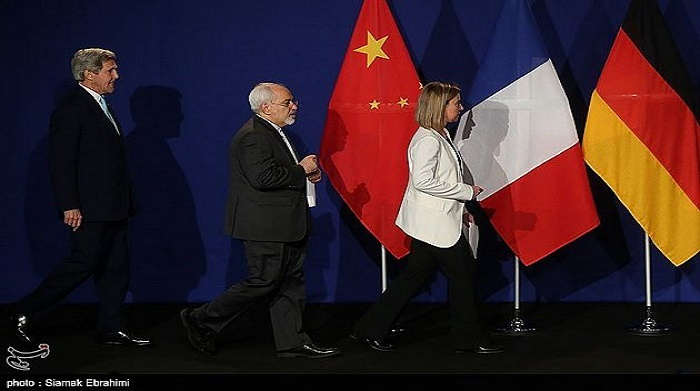The Lausanne Statement

Traditionally, any document signed by governments will have different and sometimes contradictory interpretations which are mainly caused by the internal politics of the countries involved. The name put on this type of document is not important, whether it is an "agreement", a "letter of understanding" or a "media statement" which is not binding. What is important is that the different players active in the internal politics of each country understand the opportunity that has been created and they cannot easily ignore it. The Lausanne Statement is not an exception to this rule, because as the critics of the US administration in Washington believe that the US negotiators have given extra and unjustifiable concessions to the Iranian party, there are some people in Iran who criticize the approach of the nuclear negotiating team and accuse them of ignoring Iran’s principles. All these criticisms have one thing in common and that is that they all attempt to show how this approach has moved towards the "stabilization of national interests" or "weakening of national interests".
There is no doubt that considering interests is necessary for defining political approaches, but I believe that in the majority of the political analyses stated in this regard during these days the issue of the "methodological analysis" of the Lausanne Statement is not considered. These types of analyses could show that besides all the consequences of the Iran-P5+1 negotiations on the national interests of all parties, it will have methodological effects not only at the national level but also at the international level; effects which could be determinative in changing and stabilizing "new norms" in international norms, thus, could be the source of change in the current views in international relations.
1- Article 4 of the NPT is the serious issue of difference between the two camps of superpowers. Based on this article, "None of the items of the agreement can limit the obvious right of the signing countries regarding research, development, production and usage of nuclear energy for peaceful purposes." Germany, Russia and China believe that the NPT has recognized the right of countries to develop enrichment under the supervision of the IAEA. But the US, Britain and France state that this right is exclusively limited to the "peaceful usage" of nuclear energy; this approach leaves the IAEA out of the interpretation of the peaceful usage and in the hands of the big powers. In other words, it will place "the powerful player" in the position of "neutral arbitrator". The Lausanne Statement showed that the Iranian negotiators were able to prevent this matter as both parties have stressed that the IAEA will use modern supervision technologies and will have more access to clarify the issues of the past and the present. Furthermore, it is also reiterated in this statement that "Iran's major nuclear commitments" will be verified by the IAEA.
2- If the comprehensive agreement is signed and Iran leaves Chapter 7 of the UN Charter, Iran's experience will show for the first time that countries can leave this chapter "without war". There are several examples of the occurrence of war in this regard. Iraq is an example of this issue in the region. In 1990, Chapter 7 was implemented for Iraq and the coalition forces attacked this country in 2003. It was in 2013 and following the establishment of the legitimate government of Iraq that this country was able to leave this chapter after many lobbies with the permanent members of the Security Council.
3- The success of the negotiations will disclose a not so tangible reality in international relations and that is for the establishment of "anarchic order" in the international system one can negotiate with the opponents of this order meaning the defendants of "hegemonic order". This means that the existing atmosphere between the powers in the international system could be used as an opportunity to make the existing solutions in the anarchic order in the fight against the defendants of the hegemonic order. When the "international laws" are at the service of "international politics", the IAEA is at the service of the UN Security Council and the defendants of hegemonic order attempt to control the manifestations of anarchic order, the nuclear negotiations between Iran and the big powers could keep hopes for the expansion of anarchic international order.
These examples show that today Iran's diplomacy has the capacity to actively present a plan of action at the international level aimed at reviving the systems which are based on international laws. It shows that while it considers the path to the establishment of all those orders to be the international politics and at the same time criticize it and call it oppressive, it is necessary to replace the policy of "reasoning", "wisdom" and "dialogue" with "isolation" and "negation". The Iranian diplomats have shown that it is only the "unwritten text" which had no mistake.

